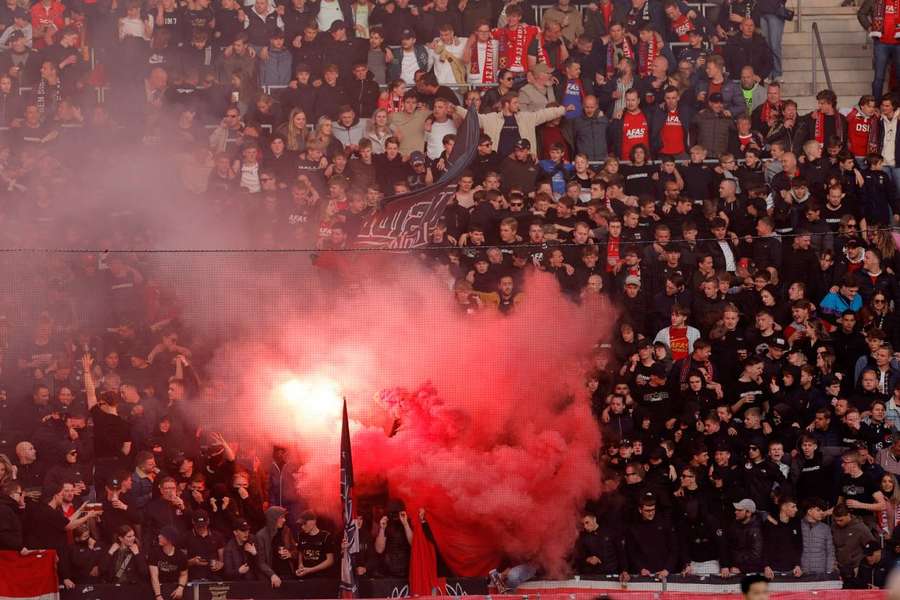Seven detained in Netherlands after West Ham families attacked

Dutch police used a television program on Tuesday to appeal for help to try and identify hooligans, showing images of suspects involved in the attack at the conclusion of Thursday’s Europa Conference League semi-final second leg between AZ Alkmaar and the London club.
Dutch police had identified 24 supporters as suspects in the apparently premeditated attack at the AZ Stadium in Alkmaar after the home club lost. More people than had been thought involved have reported to police, although 10 from that initial list of 24 are still being sought.
Police had given those involved a deadline on Tuesday to report otherwise have their images shown on a national television programme called "Opsporing verzocht" (investigation requested), which broadcasts appeals to identify criminals caught on camera, suspects, missing persons or unidentified bodies.
"There were people who we were not initially looking for, but who were afraid that they were in one of the photos," a police spokesman told the Algemeen Dagblad newspaper. "It is therefore not the case that they are automatically all suspected of open violence."
Photos taken by security cameras of 10 men involved in the attacks were shown on TV on Tuesday. They have also been posted on the programme’s website.
Home supporters broke through a fence and attacked the West Ham contingent seated in a reserved section behind their own team's dugout at the AZ Stadium at the final whistle.
A brawl ensued in which West Ham players, including captain Declan Rice, attempted to intervene, with several running to the aid of relatives and friends who were under threat.
An underage boy kicked a West Ham player, the TV programme showed while obscuring his face.
The attack was condemned by AZ Alkmaar, who called the actions of their supporters "shameful".
In the meantime, the municipality in Nijmegen has banned AZ supporters from attending Sunday's Dutch league game against home side NEC.
Bans on traveling support in the Netherlands are common to prevent potential stadium violence.



